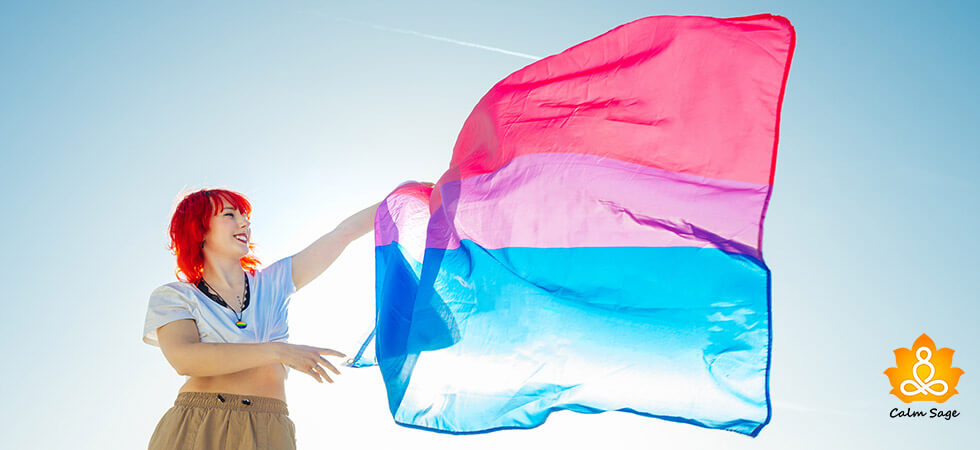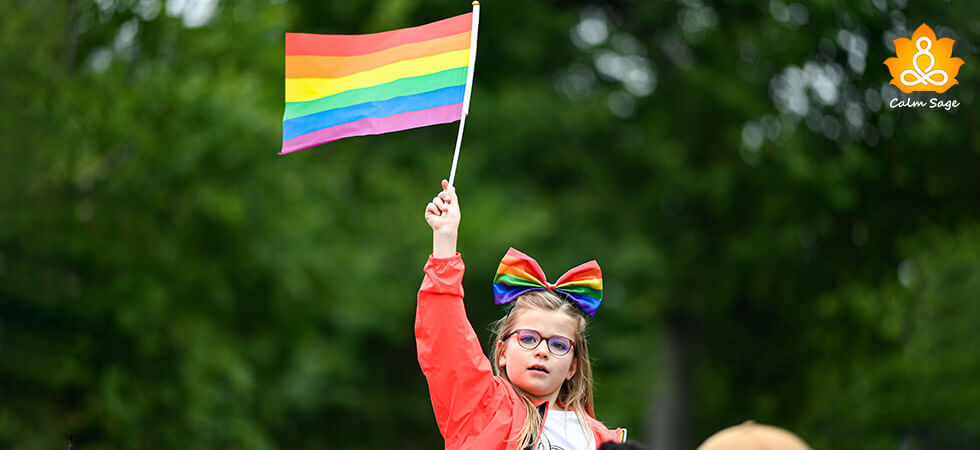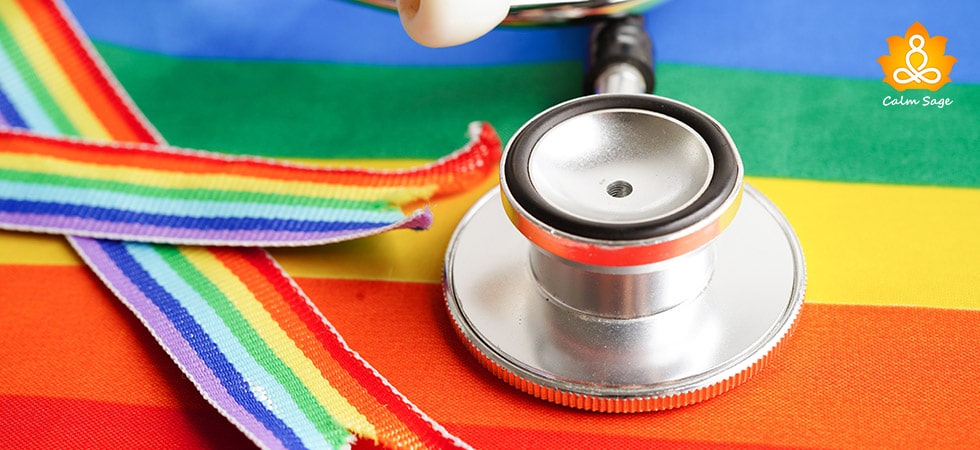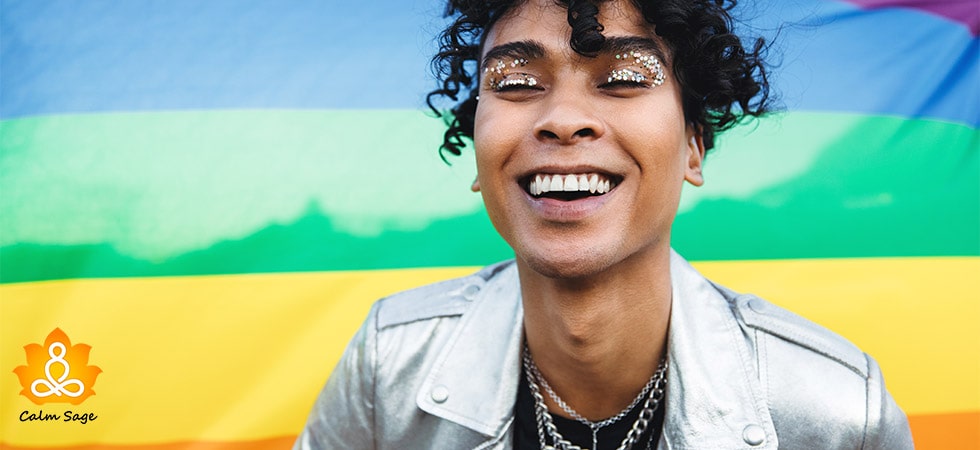Bicurious vs Bisexual? This Is What Being bi-curious Means

With how much acceptance the rainbow community aka the LGBTQIA+ community has gotten, it’s no surprise that many allies are getting curious about the different sexual and gender identities.
One of the identities I’ve heard people talk about (or curious about) about is ironically bi-curious. Many people wonder what it means to be bi-curious and we’re here to help you understand what being bi-curious means.
If someone you know, or you identify as bi-curious, then it means that you are open to engaging in romantic or sexual relationships with other gender identities but don’t identify as bisexual. For instance, as a cisgender man, you may be open to dating a person of the same sex, opposite sex, or someone who identifies as non-binary.
Let’s read more about what it means to be bi-curious, how it differs from bisexuality, the stigmas bi-curious people face, and how to support your bi-curious loved one.
What Does Bi-Curious Mean?
When you’re interested in exploring physical, emotional, or romantic intimacy with more than one gender, then it can be defined as bi-curious. According to the LGBTQIA+ acronym, bi-curious or bi-curiosity comes under the Q umbrella, as Q stands for “questioning” or “queer”.
If you or your loved one identifies as bi-curious, then you may still be questioning your attraction and sexual identity, which is normal.
Bicurious vs. Bisexual
Many people often confuse bi-curious and bisexual with each other. Some people (even from the LGBTQIA+ community) don’t take the label “bi-curious” seriously, which can affect their mental and emotional capacity. It’s important to understand the subtle difference between bi-curiosity and bisexuality to avoid generalizing them in the same category.
Bi-curious is a term or slang that can be used to describe a person’s lack of clarity in their sexual attraction or orientation. It can also be used to describe the exploration of one’s identity before they officially label themselves (or not).
This is not the same as identifying as bisexual. When you identify as bisexual, it means that you are physically, emotionally, or romantically attracted to more than one gender, either the same sex or the opposite sex.
Being bi-curious suggests a sense of exploration than conforming to sexual identity.
ASPECT |
BI-CURIOSITY |
BISEXUALITY |
| Definition | Bi-curiosity is about feeling curious in exploring attraction to others of, either, the same gender or the opposite gender. | Whereas, bisexuality is about being attracted to either the same gender as yours or the opposite one. |
| Certainty | In bi-curiosity, there is uncertainty about your sexual orientation. You may or may not be questioning your sexuality here. | In bisexuality, you feel confident and sure about feeling attracted to multiple genders. |
| Exploration | Bi-curiosity suggests a sense of exploration rather than conforming to sexual identity. | Whereas, bisexuality typically involves accepting your attraction to multiple genders without any doubt or questioning. |
| Identity | If you’re bi-curious, then you typically see this as a phase of questioning or self-discovery. | But, when you’re bisexual, you recognize your sexual orientation and accept your identity as someone who’s attracted to more than one gender. |
| Label | In bi-curiosity, you may or may not choose to label yourself as bisexual. You may prefer the use of neutral “bi-curious” more. | In bisexuality, you accept the label of “bisexual” to describe your sexual orientation to others. |
| Experience | Bi-curiosity typically evokes a sense of curiosity, exploration, and openness to new experiences. | Whereas, bisexuality involves a firm understanding and acceptance of your attraction to more than one gender. |
The Stigma Against Bi-Curious Individuals
Bi-curious individuals can often be seen dating people of different genders as they are more about exploring their identity. Did you know that in a 2010 survey by the CDC, it was revealed that women were experimenting more with bisexuality than men?
In the same survey, it was found that more than 11% of women (18-44) had at least one romantic or sexual experience with another woman.
Despite this, there are many bi-curious and bisexual individuals including men and women who face a lot of discrimination from the heterosexual community as well as the LGBTQIA+ community.
Anyone who does not identify as lesbian, gay, transgender, cisgender, or straight is more likely to face stigma and discrimination. More often than not, it is the bisexuals who are subjected to most stigmas within the rainbow community.
I believe that because bisexuals or bi-curious individuals are attracted to more than one gender and might even, at one point, date someone of the opposite gender or sex, may cause people from the LGBTQ community to believe they are not a part of the rainbow. This can be emotionally and mentally distressing to anyone who identifies as bisexual or bi-curious because they are unable to find a place to belong neither under the rainbow nor outside it.
Is It Normal To Be Bi-Curious?
Yes! It is absolutely normal to be bi-curious. Bi-curiosity means that you are open to dating more than one gender. Regardless of how you choose to identify it, it is valid. What others describe as “normal” shouldn’t make your identity less valid or accepted.
If identifying as bi-curious makes you feel comfortable or accepted, then it is normal.
If identifying as bi-curious gives you comfort or makes you feel good about yourself, then it is normal.
Sexuality and gender identity can evolve with time so even if you identify as cisgender or bisexual, having once identified as bi-curious does not make it a lie or a “phase”. Anyone can be bi-curious.
If you don’t have LGBTQIA+ resources to connect with, then you can reach out to a supportive loved one. If you want to connect with an LGBTQIA+ therapist, then you can connect with Pride Counseling here.
Having someone with whom you can connect and share your experiences can make you feel comfortable and accepted.
Please know that it’s OK to not label yourself. It’s OK to explore your identity until you find one that suits you. It’s OK to be different from others.
Supporting Bi-Curious Loved Ones
If you have a bi-curious loved one in your life and want to show your support to them, then you can be there for them when (and if) they come out of the closet. Make sure you don’t make them feel uncomfortable with intrusive questions and ask them to defend their sexual or gender identity.
It’s not about you but your loved one’s comfort. Show your gratitude towards them, acknowledge their journey, and keep supporting their exploration.
You can also refer them to resources such as:
- True Colors United
- The Trevor Project
- Q Chat Space
- LGBT National Youth Talkline
- Love is Respect
Your self-discovery and how you identify are valid and a part of your identity so don’t be ever ashamed of it.
I hope this blog helped! Let me know what you think about being bi-curious in the comments below. You can also reach out to me at info@calmsage.com.
You are amazing! You are loved!
Happy Pride!




















